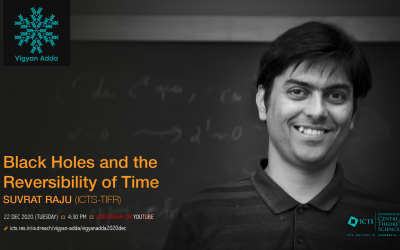Abstract: A central tenet of physics is that time evolution is reversible. Given the complete state of a system at any point of time, one can predict both its future and its past. This is true of simple ballistics problems in introductory physics, and of the very complicated systems that physicists study in other contexts.
But, at first sight, black holes seem to defy this principle. It appears that quantum fluctuations could cause a black hole to "shred" whatever information falls into it, and emit almost entirely featureless photons and gravitons. So it looks like black holes destroy information, and given the state of a black hole, one cannot determine its past. This is called the black hole information paradox.
Although the paradox is an old one, in the past few years, we have made significant progress towards resolving it. In this talk, I will describe this paradox and the recent exciting developments that teach us that a resolution lies in understanding how gravity stores information very differently from other theories.
About the Speaker: Suvrat Raju is a theoretical physicist at the International Centre for Theoretical Sciences (Bengaluru), who works on quantum aspects of black holes, quantum gravity, and quantum field theory. He obtained his undergraduate degree from St. Stephen's College (2002) and his PhD from Harvard University (2008). His work has been recognized by the ICTP Prize (2019), the Swarnajayanti Fellowship (2017), the Saraswathi Cowsik medal (2015), and the INSA Young Scientist Award (2013).



